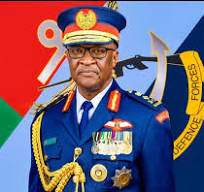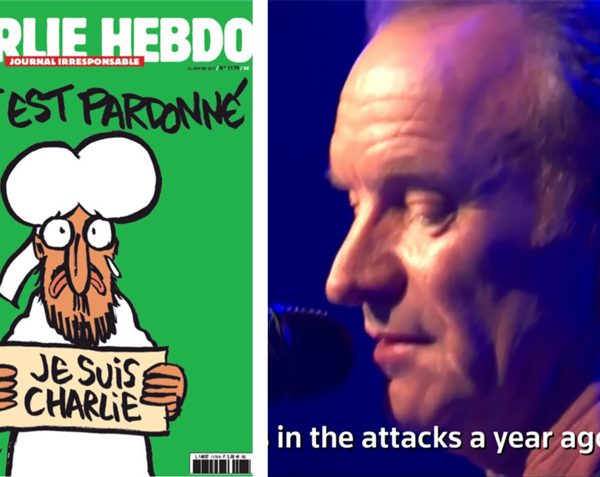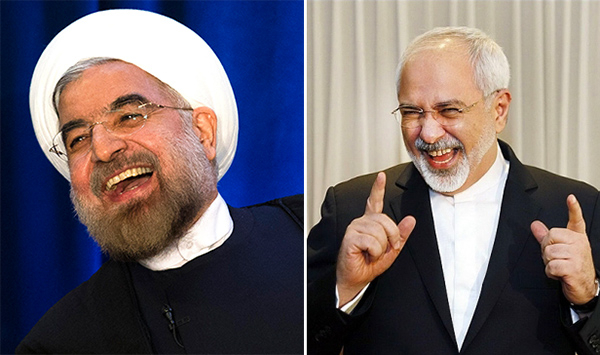
he decision to select Army Lieutenant General Herbert Raymond “H.R.” McMaster to replace retired Lieutenant General Michael Flynn as national security advisor is setting into motion a cascade of other personnel decisions that, far from draining the swamp, appear to be perpetuating it.
- Trump has decided to retain Yael Lempert, a controversial NSC staffer from the Obama administration. Analyst Lee Smith reported that, according to a former official in the Clinton administration, Lempert “is considered one of the harshest critics of Israel on the foreign policy far left.”
- Sahar Nowrouzzadeh, who served as the NSC’s Iran director during the Obama administration, is now in charge of policy planning for Iran and the Persian Gulf at the Trump State Department. Nowrouzzadeh, whose main task at Obama’s NSC was to help broker the Iran Nuclear Deal, is a former employee of the National Iranian-American Council (NIAC), a lobbying group widely believed to be a front group for the Islamic dictatorship in Iran.
- “The people who are handling key elements of those conflicts now are the same people who handled those areas under Obama, despite the results of the last election. No wonder the results look equally awful.” — Lee Smith, Middle East analyst.
The people U.S. President Donald J. Trump has chosen to lead his foreign policy team may complicate efforts to fulfill his inaugural pledge to eradicate “radical Islamic terrorism” “from the face of the Earth” — a Herculean task even under the best of circumstances.
An analysis of the political appointments to the different agencies within the U.S. national security apparatus shows that the key members of the president’s foreign policy team hold widely divergent views on the threat posed by radical Islam — and on the nature of Islam itself. They also disagree on approaches to Iran, the Arab-Israeli conflict, the European Union, Russia, globalism and other national security issues.
The policy disconnect is being exacerbated by the fact that dozens of key positions within the Pentagon, the State Department and other agencies remain unfilled. The result is that the administration has been relying on holdovers from the Obama administration to formulate and implement U.S. foreign policy.
Current foreign policy advisors can be roughly divided into several competing factions and ideological schisms: career staffers versus political appointees, civilian strategists versus military tacticians, Trump supporters versus Obama loyalists, politically correct consensus-seekers versus politically incorrect ideologues, New York moderates versus populist hardliners, Palestinian sympathizers versus advocates for Israel, proponents of the Iran deal versus supporters of an anti-Iran coalition — and those who believe that Islamism and radical Islamic terrorism derive from Islam itself versus those who insist that Islam is a religion of peace.
The winners of these various power struggles ultimately will determine the ideological direction of U.S. policy on a variety of national security issues, including the war on Islamic terror.
During his presidential campaign, voters were promised a radical shift in American foreign policy, and the consensus-driven foreign policy establishment in Washington was repeatedly blamed for making the world less stable and more dangerous.
Although much can change, the current incarnation of the national security team indicates that the administration’s foreign policy, especially toward the Middle East and the broader Islamic world, may end up being more similar than different to that of the Obama administration. Those hoping for a radical change to the politically correct status quo may be disappointed.
National Security Advisor
Among recent personnel decisions, arguably the most fateful has been to select Army Lieutenant General Herbert Raymond “H.R.” McMaster to replace retired Lieutenant General Michael Flynn as national security advisor. This change is setting into motion a cascade of other personnel decisions that, far from draining the swamp, appears to be perpetuating it.
Flynn, who resigned on February 13 after leaked intelligence reports alleged that he misrepresented his conversations with a Russian diplomat, has long argued that the West is in a civilizational clash with Islam, and that the war on terror must be expanded and intensified to reflect this reality.
By contrast, McMaster emphatically rejects the notion of a clash of civilizations. His statements on Islam are highly nuanced and not materially different from those of former presidents Barack Obama and George W. Bush.

President Donald Trump appears with Lieutenant General Herbert Raymond “H.R.” McMaster, on February 20, 2017. (Image source: PBS News video screenshot)
|
Flynn, in a speech delivered at a synagogue in Stoughton, Massachusetts in August 2016, warned that the ultimate goal of radical Islam is world hegemony:
“We are facing another ‘ism,’ just like we faced Nazism, and fascism, and imperialism and communism. This is Islamism, it is a vicious cancer inside the body of 1.7 billion people on this planet and it has to be excised.”
That same month, Flynn addressed a Baptist Church in San Antonio, Texas:
“I don’t see Islam as a religion. I see it as a political ideology that will mask itself as a religion globally, and especially in the West, especially in the United States, because it can hide behind and protect itself by what we call freedom of religion.”
In Flynn’s book, “The Field of Fight: How We Can Win the Global War against Radical Islam and its Allies,” he warned:
“We’re in a world war against a messianic mass movement of evil people, most of them inspired by a totalitarian ideology: Radical Islam…. We’ve got to stop feeling the slightest bit guilty about calling them by name and identifying them as fanatical killers acting on behalf of a failed civilization.”
In an opinion article published by the New York Post in July 2016, Flynn wrote that America’s war against radical Islam is being run by political leaders who refuse to see the big picture:
“If our leaders were interested in winning [the war against radical Islam], they would have to design a strategy to destroy this global enemy. But they don’t see the global war. Instead, they timidly nibble around the edges of the battlefields from Africa to the Middle East, and act as if each fight, whether in Syria, Iraq, Nigeria, Libya or Afghanistan, can be peacefully resolved by diplomatic effort….
“No, we’re not going to talk our way out of this war, nor can we escape its horrors. Ask the people in San Bernardino or South Florida, or the relatives of the thousands killed on 9/11. We’re either going to win or lose. There is no other ‘solution.’
“I believe we can and must win. This war must be waged both militarily and politically; we have to destroy the enemy armies and combat enemy doctrines. Both are doable. On military battlefields, we have defeated radical Islamic forces every time we have seriously gone after them, from Iraq to Afghanistan. Their current strength is not a reflection of their ability to overwhelm our armed forces, but rather the consequence of our mistaken and untimely withdrawal after demolishing them….
“We have the wherewithal, but lack the will. That has to change. It’s hard to imagine it happening with our current leaders, but the next president will have to do it.”
McMaster, however, has openly repudiated Flynn’s — and Trump’s — views on Islam. He rejects any connection between terrorism and Islam, even though Islamic scripture clearly states that true Muslims are duty-bound to wage jihad on non-Muslims until the entire world is brought under the submission of Islam and Sharia law.
On February 23, during his first staff meeting as the newly minted national security advisor, McMaster reportedly urged National Security Council employees to avoid using the term “radical Islamic terrorism” because, according to McMaster, groups such as the Islamic State represent a “perversion of Islam” and are therefore “un-Islamic.” McMaster added that “he’s not on board” with using the term because it castigates “an entire religion” and may alienate Muslim allies in the Middle East.
Less than a week later, McMaster urged Trump to remove references to “radical Islamic terrorism” from the speech the president was to deliver to Congress on February 28. The president nevertheless prevailed. “We are also taking strong measures,” he said, “to protect our nation from radical Islamic terrorism.”
Long before becoming America’s leading advisor on national security matters, McMaster, who has a long history of service in Iraq and Afghanistan, consistently echoed the Obama administration’s rhetorical efforts to delink Islamic terrorism from Islamic doctrine.
In November 2016, during a speech to the Virginia Military Institute, McMaster said that the Islamic State “cynically uses a perverted interpretation of religion to incite hatred and justify horrific cruelty against innocents.”
In May 2016, during a conference at the Center for Strategic and International Studies, he said:
“Groups like the Islamic State use this irreligious ideology, this perverted interpretation of religion to justify violence. They depend on ignorance, and the ability to recruit vulnerable segments of populations to foment hatred, and then use that hatred to justify violence against innocents.”
In August 2014, when McMaster was the featured speaker for the President’s Lecture Series at the National Defense University, he reportedly declared: “The Islamic State is not Islamic.”
In 2010, McMaster enthusiastically endorsed a book entitled, “Militant Islamist Ideology: Understanding the Global Threat,” by U.S. Navy Commander Youssef H. Aboul-Enein and published by the Naval Institute Press. A review by analyst Youssef M. Ibrahim found its claims, “many of which the Obama administration followed to disastrous results, to be incorrect and problematic.”
Aboul-Enein’s central objective is to urge American policymakers to distinguish between militant Islamists such as members of the Islamic State and non-militant Islamists such as members of the Muslim Brotherhood.
Ibrahim counters: “In reality, all Islamists share the same ultimate goal of global Islamic hegemony. They differ in methodology — but not in their view of us as the enemy to be crushed.”
Ibrahim continues:
“Aboul-Enein also suggests that if an American soldier ever desecrates a Koran, U.S. leadership must not merely relieve him of duty, but offer ‘unconditional apologies,’ and emulate the words of Maj. Gen. Jeffrey Hammond, which Aboul-Enein quotes as exemplary: ‘I come before you [Muslims] seeking your forgiveness, in the most humble manner I look in your eyes today, and say please forgive me and my soldiers,’ followed by kissing a new Koran and ‘ceremoniously’ presenting it to Muslims.
McMaster’s endorsement of the book, which appears on the jacket cover, reads:
“Terrorist organizations use a narrow and irreligious ideology to recruit undereducated and disenfranchised people to their cause. Understanding terrorist ideology is the first and may also be the most important step in ensuring national and international security against the threat that these organizations pose.
“Youssef Aboul-Enein’s book is an excellent starting point in that connection. Militant Islamist Ideology deserves a wide readership among all those concerned with the problem of transnational terrorism, their ideology, and our efforts to combat those organizations that pose a serious threat to current and future generations of Muslims and non-Muslims alike.”
McMaster’s position on the nuclear deal with Iran remains unclear. If his views on Islam are any indication, McMaster, unlike Flynn, probably does not view Iran in ideological terms.
The president has described the “Iran Deal” as a “disaster” and “the worst deal ever negotiated.” On February 1, after Iran launched a ballistic missile, the White House signaled a tougher line on Tehran. Flynn said:
“President Trump has severely criticized the various agreements reached between Iran, the Obama administration as well as the United Nations as being weak and ineffective. Instead of being thankful to the United States in these agreements, Iran is now feeling emboldened. As of today, we are officially putting Iran on notice.”
Flynn’s ouster less than two weeks later was rumored to have been orchestrated by Obama confidants in order to preserve the Iran Deal. According to reporter Adam Kredo:
“The effort, said to include former Obama administration adviser Ben Rhodes — the architect of a separate White House effort to create what he described as a pro-Iran echo chamber — included a small task force of Obama loyalists who deluged media outlets with stories aimed at eroding Flynn’s credibility, multiple sources revealed.
“The operation primarily focused on discrediting Flynn, an opponent of the Iran nuclear deal, in order to handicap the Trump administration’s efforts to disclose secret details of the nuclear deal with Iran that had been long hidden by the Obama administration.”
Strategic Initiatives Group
McMaster’s views on Islam are also diametrically opposed to those held by Stephen K. Bannon, the administration’s chief political strategist. Bannon has long warned that the Judeo-Christian West is in a civilizational conflict with Islam.
On January 28, the president signed an executive order making Bannon a permanent invitee to all meetings of the National Security Council, and also making him a regular member of the so-called Principals Committee, the Cabinet-level senior interagency forum that is led by the national security advisor and decides foreign policy issues that do not go to the president. The executive order significantly increased Bannon’s influence and power in the White House decision-making process.
At the same time, Bannon and the president’s son-in-law, Jared Kushner, have established the Strategic Initiatives Group, an internal White House think tank that some analysts believe will challenge policy advice coming from McMaster and the National Security Council.
The Strategic Initiatives Group, which has been described as a “shadow NSC,” is run by assistant to the president Christopher Liddell and White House chief of staff Reince Priebus, and includes deputy assistant to the president Sebastian Gorka, author of the book, “Defeating Jihad: The Winnable War.” Like Bannon, Gorka believes that “the global jihadi movement is a modern totalitarian ideology rooted in the doctrines and martial history of Islam.”
McMaster is rumored to be considering a reorganization of the White House foreign policy team that would give him more control. Sean Spicer, the White House press secretary, said that McMaster has full authority to organize his staff, but that any change in Bannon’s status must be approved by the president. Either way, conflict between McMaster and Bannon seems inevitable.
National Security Council
McMaster’s first personnel decision was to name Dina Powell to serve as Deputy National Security Advisor, the number two position on the National Security Council — and a post already filled by K.T. McFarland.
McFarland, a former official in the Reagan administration, has been a vocal critic of the Obama administration’s timidity in the face of radical Islam, which she has described as “the most virulent, lethal, apocalyptic death cult in history.” In an opinion article that was published in the wake of the jihadist attacks in Brussels on March 22, 2016, McFarland wrote:
“Global Islamist jihad is at war with all of Western civilization. President Obama and other Western leaders may not see it as a war, but the other side does. Left largely unchecked over the last seven years, radical Islam has exploded worldwide….
“We have been one step behind this enemy for years. We’re still tongue-tied by political correctness, while they’re setting off bombs at train stations, airports and community centers.
“We are losing this war. Our losses grow greater every day, while terrorists recruit off the images of the West’s most innocent and vulnerable fleeing in horror. The hour is already late to defeat this growing scourge. But if we are to defeat radical Islam, it will be only with a multifaceted, comprehensive strategy that calls on all the aspects of the national power of ourselves and our allies — like we summoned to defeat the Nazis in World War II or the Communists in the Cold War.”
McFarland, whose future at the NSC has been uncertain since Flynn resigned, reportedly has been offered the post of U.S. ambassador to Singapore.
Dina Habib Powell, 43, a former executive with Goldman Sachs, is the first Arab-American to join the Trump White House. She was born in Egypt and immigrated to the United States as a child with her Coptic Christian parents. Fluent in Arabic, she worked in the Bush administration, on public diplomacy to improve perceptions of America in the Arab world.
Powell is also said to be close to many Democrats, including some who have worked in the Obama administration. According to Politico, Powell has a strong personal relationship with Valerie Jarrett, one of the closest advisors to Barack Obama. Jarrett, who was born in Iran, and is widely rumored to be the architect of the Iran Nuclear Deal, reportedly has moved into Obama’s home in Washington, D.C. to lead a resistance movement against Trump’s efforts to reverse his predecessor’s foreign and domestic policies.
Powell’s ascendancy is tied to Trump’s daughter, Ivanka, who hired her to provide advice on politics in Washington. Powell has been described as “Ivanka Trump’s woman in the White House.”
Meanwhile, McMaster has tried to replace Ezra Watnick-Cohen, the NSC’s senior director for intelligence programs. Watnick-Cohen, another Flynn protégé, is a 30-year-old intelligence operative with the Defense Intelligence Agency who has reportedly fallen out of favor with some people at the Central Intelligence Agency. Politico reported that Cohen-Watnick and Flynn “saw eye to eye about the failings of the CIA human intelligence operations,” according to an operative. “The CIA saw him as a threat, so they tried to unseat him and replace him with an agency loyalist,” he said.
Cohen-Watnick appealed McMaster’s decision to Bannon and Kushner, both of whom brought the matter to Trump. The president eventually agreed that Cohen-Watnick should remain as the NSC’s intelligence director.
McMaster reportedly also wanted to replace Cohen-Watnick with Linda Weissgold, a longtime CIA official. During the Obama administration Weissgold served as director of the CIA’s Office of Terrorism Analysis. Journalist Michael Warren wrote:
“In her position at OTA, she was also involved directly in drafting the now infamous Benghazi talking points, which government officials revised heavily to include factually incorrect assessments that stated the attackers were prompted by protests. According to the House Select Committee on Benghazi’s report, Weissgold testified she had changed one such talking point to say that extremists in Benghazi with ties to al Qaeda had been involved in ‘protests’ in the Libyan city, despite the fact that no such protests occurred there on the day of the attack.”
The CIA also rejected a security clearance for Robin Townley, the NSC’s senior director for Africa and one of Flynn’s closest advisors. The denial of a request for so-called “Sensitive Compartmented Information” clearance forced Townley, a former Marine intelligence officer who had long maintained a top secret-level security clearance, out of his NSC post. The rejection was approved by Mike Pompeo, the new CIA director.
Flynn and his allies reportedly believed that the rejection was motivated by Townley’s skepticism of the intelligence community. “They believe this is a hit job from inside the CIA on Flynn and the people close to him,” said one source, who argued that some in the intelligence community felt threatened by Flynn and his allies. “Townley believes that the CIA doesn’t run the world,” the source said.
The Cohen-Watnick and Townley episodes have highlighted ongoing tensions between the CIA and Trump advisors who are skeptical of the agency. Flynn was said by some as waging “a jihad against the intelligence community” while others have pointed to Flynn’s ouster as an example of how the CIA is trying to undermine the Trump administration and retain its own autonomy.
At the same time, Trump has decided to retain Yael Lempert, a controversial NSC staffer from the Obama administration. Analyst Lee Smith reported that, according to a former official in the Clinton administration, Lempert “is considered one of the harshest critics of Israel on the foreign policy far left.” The source added:
“From her position on the Obama NSC, she helped manufacture crisis after crisis in a relentless effort to portray Israel negatively and diminish the breadth and depth of our alliance. Most Democrats in town know better than to let her manage Middle East affairs. It looks like the Trump administration has no idea who she is or how hostile she is to the U.S.-Israel relationship.”
Smith noted:
“This is the same Trump administration that said it was going to move the U.S. embassy to Jerusalem? Making big promises to Jewish voters during campaign season and then dumping them in the trash along with yesterday’s campaign lawn signs is old hat in Washington, though. And after eight years of Obama’s very public ministrations to his favorite ‘donors,’ Jewish votes are especially cheap — you can name Louis Farrakhan’s former spokesman as vice chairman of your party and the faithful will sigh with relief. So why should Trump bother?”
Smith also revealed that the Trump administration has retained Brett McGurk, the Obama administration’s special envoy to lead the campaign against the Islamic State. According to Smith:
“One of the main reasons Obama’s ISIS policy failed was because Sunni actors refused to engage in an intramural civil war whose spoils would go to the Iranians and their Shia allies. McGurk was the point man on this pro-Iran policy, famously arranging for Iran to get $400 million in cash delivered on wooden pallets to the IRGC in exchange for American hostages.
“Remember when the Trump administration promised to make public the secret agreements that Obama made with Iran? McGurk signed some of the secret documents, relieving sanctions on a key financial hub of Iran’s ballistic-missile program, and dropping charges against 21 Iranian operatives linked to terrorism. Notably, none of those documents has actually been made public. Maybe that’s because McGurk’s name is on them.”
State Department
Meanwhile, Sahar Nowrouzzadeh, who served as the NSC’s Iran director during the Obama administration, is now in charge of policy planning for Iran and the Persian Gulf at the Trump State Department. Nowrouzzadeh, whose main task at Obama’s NSC was to help broker the Iran Nuclear Deal, is a former employee of the National Iranian-American Council (NIAC), a lobbying group widely believed to be a front group for the Islamic dictatorship in Iran.
In an opinion article published by the Washington Examiner on March 16, Amir Basiri, an Iranian human rights activist wrote:
“Obama’s failed Iran policy is a clear testament to the damage that appeasement and rapprochement does to the Iranian people, Middle East nations, and U.S. interests. The ill that Nowrouzzadeh and her ilk have caused only underlines the necessity to drain the Iran appeasement swamp in the State Department, and to stand with the Iranian people for a change.”
Other notable holdovers from the Obama administration include:
- Chris Backemeyer, who serves as deputy assistant secretary for Iranian affairs under Secretary of State Rex Tillerson. Backemeyer is now the highest-ranking official at the State Department for Iran policy. During the Obama administration, Backemeyer was tasked with persuading multinational corporations to do business with Iran.
- Thomas A. Shannon, Jr., a career foreign service officer who serves as Under Secretary of State for Political Affairs. Shannon, the State Department’s fourth-ranking official, has warned that scrapping the Iran Deal would lead to a nuclear arms race in the Middle East. “Any effort to step away from the deal would reopen a Pandora’s box in that region that would be hard to close again,” he said. His statement indicates that Shannon could be expected to lead efforts to resist any attempts to renege or renegotiate the deal; critics of the deal say that Iran’s continued missile testing has given Trump one more reason to tear up his predecessor’s deal with the Islamist regime.
- Michael Ratney, a top advisor to former Secretary of State John Kerry on Syria policy. Under the Trump administration, Ratney’s role at the State Department has been expanded to include Israel and Palestine issues. In July 2016, the Senate Permanent Subcommittee on Investigations disclosed that Ratney, who was the U.S. Consul in Jerusalem between 2012 and 2015, oversaw $465,000 in U.S. grants to the OneVoice Movement, a liberal group that waged a clandestine campaign to smear and remove Israeli Prime Minister Benjamin Netanyahu from office. Ratney admitted to Senate investigators that he deleted emails containing information about the Obama administration’s relationship with the non-profit group.
On March 30, Trump’s State Department announced that it would allow Jibril Rajoub, a Palestinian official known for promoting the murder and kidnapping of Israelis, into the United States for a series of high-level meetings on the Israel-Palestinian peace process.
Rajoub was sentenced in September 1970 to life in prison for throwing a grenade at an Israeli Army bus near Hebron. He served 15 years in prison, but was released in a 1985 prisoner exchange. Since then, he has repeatedly praised Palestinian terrorists who kill Israeli civilians. In an October 2015 television interview, Rajoub said:
“These are individual acts of bravery, and I am proud of them. I congratulate everyone who carried them out. I say to you, we are proud of you. Whoever confronts, fights, dies as a Martyr, is arrested or injured, they are assets to the entire Palestinian people.”
The Trump administration issued an anodyne statement that could easily have come from the Obama administration:
“The U.S. government does not endorse every statement Mr. Rajoub has made, but he has long been involved in Middle East peace efforts, and has publicly supported a peaceful, non-violent solution to the Israeli-Palestinian conflict. We continue to press Fatah officials, including Rajoub himself, to refrain from any statements or actions that could be viewed as inciting or legitimizing others use of violence.”
Foreign affairs columnist Lawrence J. Haas has sharply criticized the administration’s embrace of Rajoub:
“Rajoub is no peace activist who just needs to tone down his rhetoric. He’s a hardcore Israel rejectionist who honors ‘martyrs,’ promotes murder and kidnapping, and envisions a Palestine that stretches from the Jordan River to the Mediterranean Sea, erasing Israel in the process.
“The embrace of Rajoub raises profound questions as to whether President Donald Trump has a coherent policy toward Israel or, as seems more likely, disjointed policies are emerging from competing power centers across the administration that view Israel and the U.S.-Israeli alliance in profoundly different ways.”
Historian Daniel Pipes believes the Trump administration may follow Obama’s footsteps and ultimately turn against Israel. In an interview, Pipes said:
“I also wouldn’t be surprised if he [Trump] turned against Israel, seeing it as the intractable party because that is what often happens. Look at Jimmy Carter and Barack Obama: they make efforts and they get frustrated that the Israelis don’t give more because there is an enduring belief that if only the Israelis gave more, the Palestinians would relent and stop being rejectionists and everything would be fine. So, I am worried.”
Department of Defense
At the Pentagon, Defense Secretary James Mattis’s initial choice to be his second in command was Michèle Flournoy, a Democrat who was seen as a leading candidate for Defense Secretary in a Hillary Clinton administration. Flournoy turned down Mattis’s offer and the position continues to be filled by Robert O. Work, who was appointed to the job by President Obama. Some Republicans blame Work for Mattis’s failure to advocate for a greater increase in the defense budget.
Mattis, who fell out with the Obama administration over Iran, also proposed Anne W. Patterson as his choice for undersecretary for policy. Patterson served as U.S. ambassador to Egypt from 2011 to 2013, a time when the Obama administration supported the Muslim Brotherhood-backed government of then-President Mohamed Morsi. Patterson’s nomination was vetoed by the White House. The position is being filled by Theresa Whelan, a career member of the Senior Executive Service.
For the post of undersecretary for personnel and readiness, Mattis proposed Rudy de Leon, a veteran of the Clinton administration and a senior fellow at the Center for American Progress, a liberal think tank founded by Clinton acolyte John Podesta. De Leon, it so happens, //medium.com/@NewSecurityNetwork/letter-from-national-security-leaders-on-refugee-executive-order-397576050a17” target=”_blank”>signed a January 30 letter opposing Trump’s moratorium on migrants from six Muslim countries. The letter says the suspension is “inhumane” and “beneath the dignity of our great nation.”
Republicans on Capitol Hill have expressed frustration with Mattis. An aide to a Republican Senator on the Armed Services Committee said: “He certainly has got a tough job, but it sometimes feels like he forgets that we won the election.” Another said: “We’ve waited eight years for this, to be able to fill these posts with Republicans. We know Trump isn’t part of the establishment and that it’s going to be a bit different, but it should go without saying that a Republican administration is expected to staff federal agencies with Republicans.”
National Economic Council
The National Economic Council, the main forum for developing and coordinating the president’s economic program, is headed by Gary Cohn, a registered Democrat and, like Dina Powell, a former executive of Goldman Sachs. So far, so good.
As Trump’s top economic policy advisor, however, Cohn has sparred with Bannon over key aspects of the administration’s economic, tax and trade policies. Among other issues, the two men are said to have competing positions on the border adjustment tax (Bannon is for it, Cohn is not), the carbon tax (Cohn is for it, Bannon is not) and trade. Cohn is a free trade globalist who supports multilateral trade deals like the North American Free Trade Agreement (NAFTA), while Bannon is an economic nationalist who eschews them.
During his campaign, Trump repeatedly described NAFTA as a “disaster” and vowed to renegotiate the deal. On March 30, however, the Wall Street Journal, reviewing an administration draft proposal, reported that the White House is now seeking mostly minor changes to NAFTA and plans to retain some of its most controversial provisions.
Fox Business Correspondent Charlie Gasparino wrote:
“How Bannon and Cohn became senior officials in the Trump administration speaks to the president’s unorthodox management style, where he appoints people to key positions often based on gut and personal relationships.
“While Trump was naturally attracted to Bannon’s political and economic policies, he is said to be fond of Cohn’s assertive management style and stature; while at Goldman, Cohn was an imposing figure on the firm’s trading floor and later as a top executive, where he was regarded as the heir apparent to the firm’s chief executive Lloyd Blankfein.
“But now Trump’s management style is being put to the test on economic issues as Bannon and Cohn compete for the president’s ear.”
Roger Stone, a longtime Trump loyalist, has accused Trump’s son-in-law, Jared Kushner, of feeding “lies and intel” to the media to hurt Bannon and others who are arguing against the “globalist agenda.” In an interview with the Washington Examiner, Stone said:
“The president’s son-in-law, Jared Kushner, perhaps the one presidential aide who cannot be fired, is now in regular text-message communications with Joe Scarborough [a cable news and talk show host],” Stone said. “Many of the anti-Steve Bannon stories that you see, the themes that you see on ‘Morning Joe’ are being dictated by Kushner.”
Cohn and Powell are said to be allied with Trump’s eldest daughter Ivanka and Kushner. They are allegedly leading a White House faction that has been referred to as the “New York liberals.” They are reportedly battling with the Bannon faction of populist hardliners for policy influence on a wide variety of policy issues.
Former House speaker Newt Gingrich, an informal adviser to the president, put it this way: “It would be interesting to see to what degree the New York liberals change Trump and to what degree Trump changes the New York liberals.”
Conclusion
Trump has the opportunity to fill as many as 4,000 leadership and policymaking positions across the federal government, but he has vowed to leave many political appointments unfilled “because they’re unnecessary to have.”
As Lee Smith points out, the policy implications of the unfilled vacancies and the ongoing turf wars within the Trump administration are far-reaching:
“The main point is this: While the Trump cabinet is at daggers drawn, while it can’t hire the staff to implement the policies the president campaigned on — to destroy ISIS, to rein in Iran and crash the nuclear deal, to protect American citizens and interests, and to realign with allies like Israel that Obama made vulnerable — there are much more decisive and deadly conflicts going on almost everywhere around the world. The people who are handling key elements of those conflicts now are the same people who handled those areas under Obama, despite the results of the last election. No wonder the results look equally awful.”








































